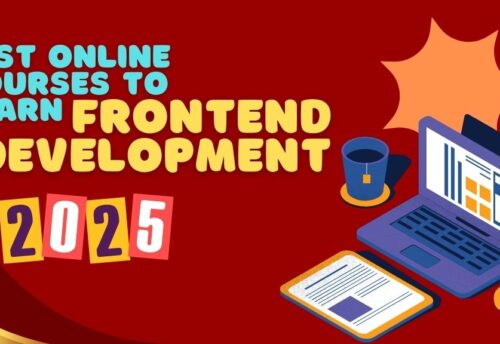
The Top 10 Tips For The Perfect Job Interview
1.Know Your Resume Well :-
I possess extensive expertise in natural language processing and understanding, reinforced by a robust training regiman.my capability encompass a wide range of application ,from conversation. I am adept at handling diverse datasets and extracting meaningful insights through advanced analytics. Additionally,I excel in contextual understanding and can adapt seamlessly to varying conversational styles and topics .My skills include but are not limited to information retrieval,sentiment analysis,and language translation.I am proficient in multiple programming languages and frameworks ,enabling me to develop innovative solutions efficiently.
2 . Research About the Company :-
A helpful company full review should be specific to the company and avoid vague statement, salaries, leadership, and even sample interview questions, through the words of actual people we outline the steps you can take to thoroughly research a company before applying for a job or attending an interview and several additional tips.In addition to pay and benefits, 43% of candidates say they are attracted to a new job because of meaningful work.¹ By researching the company’s online presence, you can identify the values, mission, DEI presence and more. Review the company website.
3.Prepare commonly asked Interview question:-
Certainly! Preparing for commonly asked interview questions involves anticipating inquiries that delve into your experience, problem-solving abilities, interpersonal skills, and alignment with the company culture. These questions aim to uncover your motivations, achievements, and how you handle challenges. They often explore scenarios where you’ve demonstrated leadership, resolved conflicts, or contributed to team success. Practicing responses that showcase your unique strengths, adaptability, and passion for the role helps you stand out and effectively communicate your qualifications to potential employers.
4. Know about Interview round:-
The interview round is a pivotal stage where candidates showcase their skills, experience, and personality to prospective employers. It serves as a platform for employers to assess candidates’ suitability for the role based on their responses to questions tailored to uncover their professional competencies, problem-solving abilities, and cultural fit within the organization. This phase often involves a mix of behavioral questions, technical assessments, and sometimes situational challenges designed to gauge candidates’ readiness and potential contributions to the company. Successful candidates use this opportunity to articulate their unique qualifications, demonstrate their value proposition, and leave a lasting positive impression on the interviewers.
5. Dress Properly:-
Dressing properly means selecting attire that aligns with the occasion’s formality and cultural expectations, presenting oneself professionally while reflecting personal style sensibilities. It involves choosing garments that are well-fitted, clean, and free of wrinkles, complemented by appropriate accessories to enhance overall appearance without overshadowing professionalism. Dressing properly communicates respect for the environment and an understanding of its norms, ensuring one feels confident and comfortable, fostering a positive first impression.
6. Be calm,Confident and Composed:-
Maintaining calm, confidence, and composure involves cultivating inner poise, projecting assurance in demeanor, and navigating situations with grace and clarity. It entails harnessing a steady presence amidst challenges, exuding self-assurance through poised body language and articulate communication. During interviews, confidence suggested to asking for a questions of supervisors and manager. This confidence also encourages you to accomplish tasks and achieve goals with more ease.Confidence helps you take bold steps in the face of obstacles or adversity because it reminds .Some claim that confidence is a skill developed by a lot of practices. Being calm, confident, and composed is a manifestation of inner strength, enabling one to approach interactions with resilience, authenticity, and a steadfast focus on achieving desired outcomes.
7. Arrive on time for interview:-
Arriving punctually for an interview underscores professionalism and respect for others’ time. It involves being early enough to account for unforeseen delays, ensuring a smooth transition into the interview setting.As a general rule, experts recommend that you go to interview places 15 minutes early to go early. plan to arrive at a job interview 1 On top of that time, they also recommended that you build a 15- to 20-minute cushion into your commute, to ensure that factors like traffic or co5 minutes early.nstruction don’t keep you from arriving when you should. Prompt arrival sets a positive tone, allowing candidates to gather their thoughts, compose themselves, and demonstrate their reliability from the outset. It reflects a commitment to the opportunity and a readiness to engage earnestly in the interview process.
8. Body language matters:-
Body language is a silent yet powerful communicator, conveying emotions, intentions, and attitudes through non-verbal cues. It shapes perceptions, influencing how others interpret one’s confidence, sincerity, and engagement. Body language enhances trust ,clarity and rapport though hand signals, gestures and postures. It’s a subtle art that can build rapport, convey empathy, and convey assertiveness, reinforcing the spoken message with authenticity and impact.
9. Ask Question:-
Asking questions during an interview is an opportunity to demonstrate curiosity, insight, and a genuine interest in the company and role. It involves probing intelligently to gain a deeper understanding of the company’s goals, culture, and expectations. Effective questions showcase your preparation and critical thinking skills, aiming to uncover insights that go beyond surface-level information. They should be thoughtful, showing your enthusiasm for contributing to the organization’s success while aligning your career aspirations with the opportunities presented.
10. Follow up after the interview:-
Following up after an interview is a crucial step in reaffirming your interest and professionalism. It involves sending a personalized message expressing gratitude for the opportunity to interview, reflecting on key discussion points, and reiterating your enthusiasm for the role and company. This gesture underscores your proactive approach and commitment, while also providing an opportunity to reinforce your qualifications and any additional information that may strengthen your candidacy. A well-crafted follow-up demonstrates your attention to detail and leaves a positive impression on the interviewers.
- Easy-going: a relaxed person who is easy to get along with
- Hard-working: someone who works well and isn’t lazy
- Committed: a person who is loyal to a project or person
- Trustworthy: someone who you can rely on
- Honest: someone who tells the truth
- Focused: someone who is not easily distracted
- Methodical: a person who pays attention to details and works in a logical way
- Proactive: someone who takes steps to complete tasks without supervision




Leave a Comment